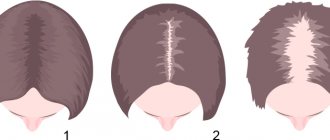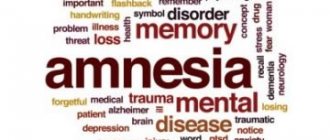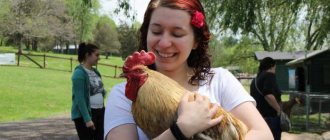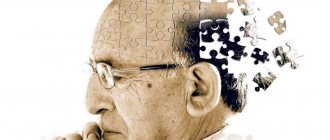What to do if an elderly person loses memory
One of the common problems of older people is increased forgetfulness. This pathology occurs in 10–15% of people over the age of 65 and entails partial or complete loss of acquired skills, as well as absent-minded attention. This condition should not be underestimated, since Alzheimer’s disease is often behind memory loss.
At the first signs of memory loss, timely diagnosis and treatment are required to help restore brain activity. Examination of a person with memory loss includes:
- biochemical and general blood and urine tests;
- Doppler ultrasound;
- EEG is a research method that allows you to determine even the slightest changes in the function of the cerebral cortex;
- CT – layer-by-layer examination of the brain without contrast enhancement;
- TCD is a scan of brain vessels that allows you to detect pathologies in the early stages of development.
After diagnosis, the doctor prescribes medications aimed at improving brain activity.
Important! Memory loss is a condition that requires the help of a qualified specialist, since self-medication entails irreversible consequences.
Features and types of memory loss
A disease characterized by memory lapses is called amnesia. Based on the surviving information, there are several types of human memory disorders:
- full;
- partial;
- localized.
Complete memory loss develops against the background of psychological and physical trauma, as a result of which the elements that retain information are destroyed. This condition is characterized by a complete absence of memories for a certain period of time.
Poor circulation and oxygen starvation cause partial memory loss. With this mental disorder, only some memories are missing: the person forgets some events and skills from his life, incoherent images from the past remain, which the patient cannot determine in a time frame.
This condition occurs due to damage to the cerebral cortex: stroke, infections, tumors. Inadequate nutritional intake during a crash diet also contributes to the development of memory loss.
Localized loss of memories occurs against the background of psychological trauma, as a result the person loses one of the skills: for example, speech.
If short-term loss of memories is caused by taking medications or overwork, then to restore it it is enough to remove the provoking factors.
Short-term memory loss after depression
Stress, trauma and nervous tension cause changes in the cerebral cortex: neural connections are disrupted, perception and processing of information deteriorates. It becomes difficult for a person to fix his attention on any object or specific event.
Overwork often leads to depression, weakening of the body's protective functions, and endocrine diseases. The impact of these unfavorable factors entails disruption of the growth of nerve cells, some of them are damaged, and then short-term memory loss develops.
The more a person is in a stressful situation, the more extensive the disruption in the body’s functioning: not only the ability to remember, but also other functions suffers.
Memory loss after alcohol
Alcohol abuse and drug use lead to toxic poisoning. Since the body devotes all its efforts to restoring basic vital functions, the brain ceases to receive a sufficient amount of nutrients.
Smoking also adversely affects the ability to remember: when cigarette smoke enters the lungs, normal oxygen absorption is disrupted and vasospasm occurs. Due to oxygen starvation, the nerve tissue of the brain is destroyed, and temporary loss of memories occurs.
Main types of memory disorders in old age
Memory disorder in older people is divided into several types:
According to the volume of forgotten information:
- selective amnesia;
- global amnesia.
According to the rate of memory loss:
- sudden;
- gradual.
According to the ratio of events of the present to the past:
- retrograde;
- anterograde.
By amount of time elapsed:
- long-term memory;
- short-term memory.
In addition, older adults may experience visual memory loss. In this state, a person does not recognize people he previously knew, including those closest to him.
Memory loss treatment
If you have memory loss, short-term memory loss, partial memory loss, periodic age-related memory loss in the elderly, sudden and complete memory loss (including after alcohol, after a stroke, after a stroke, sudden, short-term memory loss), contact Sarklinik . Sarclinic knows what to do with this syndrome, how to treat memory loss.
Sign up for a consultation. There are contraindications. Specialist consultation is required.
Photo: Pixattitude | Dreamstime.com \ Dreamstock.ru The people depicted in the photo are models, do not suffer from the diseases described and/or all similarities are excluded.
Related posts:
Nervous exhaustion symptoms signs treatment, exhaustion of the nervous system
Facial nerve, facial nerve neuritis, treatment, inflammation, paresis, neuritis, neuropathy, facial nerve neuralgia
Polyneuritis, treatment of polyneuritis, alcoholic polyneuritis, polyradiculoneuritis
Poor attention: absent-mindedness, exhaustion, narrowing of scope, stiffness, distractibility
Hypersomnia, doubtfulness, pathological increased sleepiness, treatment
Comments ()
Symptoms of memory loss
Memory disorder is a gradual and long-term process, so it is quite difficult to notice any changes at the initial stage. The following symptoms are typical for this condition:
- frequent headaches caused by brain injuries;
- dizziness associated with dysfunction of the vestibular apparatus;
- tremor that worsens even with a minor stressful situation;
- impaired coordination of movements;
- absent-minded attention, inability to evaluate events or situations;
- chronic fatigue caused by past diseases (infectious, viral);
- apathy, depression;
- confusion - decreased concentration;
- speech disorders – inability to express thoughts, find the right words, speech dysfunction.
If memory loss is accompanied by these symptoms, the elderly person needs care, as the risk of getting lost on the street increases.
Types of amnesia
Amnesia is a disease whose symptom is short-term memory loss syndrome. With adequate treatment of this disease, memories return in chronological order, starting with the very first, but what happened immediately before the memory loss remains lost forever. There are several types of this disease.
- Retrograde - events that precede the loss of information are forgotten, which subsequently cannot be restored.
- Anterograde - the ability to remember and analyze events that occurred before the onset of the disease is lost, while past memories remain intact.
- Anteroretrograde - a combination of the first 2 types of amnesia, develops against the background of severe shocks or brain injuries.
- Fixation - the patient cannot remember current events; this type of disorder most often occurs during a coma, deafness, or the course of various diseases, manifests itself in complete loss of memory.
- Congrade - occurs only during illness.
- Dissociated - with this form of amnesia, the patient forgets facts from his personal biography, but universal memories are retained.
- Childhood - this type of loss of memories is typical for all people - they do not remember events that occurred in childhood and infancy. It is believed that this type of amnesia develops due to unstable mental development in childhood.
- Post-hypnotic - the inability to reproduce events that occurred under the influence of hypnosis.
- Catathymic - memories associated with factors provoking the disease are erased.
- Progressive - memory loss worsens over time, and later events are forgotten.
- Retarded - failures appear gradually, memories slowly fade away.
- Permanent is a permanent loss of memories that does not change over time.
- Dissociative fugue is a disease in which the patient cannot fully remember his biography; everything is forgotten, down to his name and date of birth. The patient remains in this state for 1 month or more, then a sharp recovery occurs, but what happened during the fugue is forgotten.
Korsakoff's syndrome - a severe form of amnesia
The basis of Korsakoff's syndrome is fixation amnesia, that is, the patient cannot remember events that just happened. As a result of the disease, the patient is completely disoriented: they do not understand where they are, cannot name the exact date, often do not distinguish reality from fiction, concentration is impaired, and all the signs of retrograde and anterograde amnesia are present.
Unlike madness, a sick person is able to solve intellectual problems and perceive the world around him normally. In familiar conditions, he does not feel lost, whereas, finding himself in a hospital or an unfamiliar stop, he loses the ability to remember new information.
Fixation amnesia
This type of amnesia is classified as a disease caused by psychopathological factors. It is characterized by the inability of a sick person to store, analyze and reproduce received information. Psychopathological syndromes are a set of psychological disorders that lead to disruption of brain activity. These include mental disorders such as affect, depression, mania, hysteria, pathological headaches, anorexia, and various types of amnesia.
Fixation amnesia cannot be completely cured, and the speed of recovery depends on the condition of the body. At the initial stage of the disorder, only when faced with memory problems, the patient feels well, but experiences slight discomfort due to memory deterioration, which quickly passes when the patient adapts to his condition - finds a way out of situations by keeping a diary or notes.
Worsening over time, the memory disorder completely changes the patient’s life - he cannot remember basic things: whether he slept, whether he ate, and there is a need for constant care for him.
Treatment depends on the reasons that caused the loss of short-term memory, by identifying which you can find out why amnesia developed.
Short-term memory loss
One of the reasons for memory deterioration is the deterioration of the central nervous system (CNS). The process of renewal and formation of nerve cells is affected by slow metabolism, which often leads to short-term memory loss. In addition, sudden memory loss can be caused by other physiological and psychological reasons.
Physiological reasons:
- excessive mental stress;
- chronic malaise associated with the presence of various diseases;
- bruises, blows to the head;
- psychoneurological pathologies;
- cerebrovascular accident;
- Alzheimer's and Parkinson's disease;
- prolonged intoxication of the body;
- lack of physical activity;
- slow metabolism;
- lack of adequate regular nutrition;
- infectious diseases in active form.
Psychological reasons:
- depression;
- prolonged nervous tension;
- lack of proper rest, resulting in overexcitement;
- prolonged loneliness, lack of communication with loved ones.
Often the cause of memory impairment in old age is due to previous diseases (stroke, ischemia and their complications) and alcohol addiction.
Lack of medical attention for short-term memory loss can lead to brain dysfunction, so such patients need to be examined by a specialist.
How to deal with amnesia
Short-term memory loss is currently very successfully treated with drug therapy. Therefore, you should not neglect taking prescribed medications. Their action is aimed at improving blood circulation and restoring neural connections between brain cells responsible for memories.
There are several rules to help improve memory:
- First of all, you should quit bad habits and establish a healthy lifestyle.
- Improving the quality of food consumed contributes to better memory, since healthy food contains substances necessary for brain function.
- Try to distance yourself from situations that cause stress and depression, and lead a more measured lifestyle.
- Healthy sleep is the key to productive treatment of ailments associated with overwork.
- If you notice signs of impaired perception of the situation and concentration, do not postpone your visit to the doctor.
Today, hypnosis is successfully used to treat short-term memory loss, during which it is possible to restore some moments from life.
Treatment
Memory loss is rarely due to just one cause. As a rule, brain dysfunction is a consequence of a malfunction in the functioning of the entire body. Therefore, treatment includes not only taking medications, but also various health measures:
- annual medical examination;
- regular blood pressure monitoring;
- refusal of excessive alcohol consumption, smoking;
- balanced diet;
- taking vitamin and mineral complexes;
- sleep at least 7 hours a night.
- development of intelligence (solving crossword puzzles, learning foreign languages, reading, etc.);
- regular physical activity (physical activity).
If memory impairment progresses, it is recommended:
- diversify your leisure time with drawing or singing lessons;
- activate brain activity (discuss with an elderly person his biography, life events, etc.);
- record events in a diary;
- discuss watching a movie, an event, a book read;
- take daily walks.
For a person with memory loss, it is very important to regularly maintain mental activity. Systematic physical activity, interesting leisure and communication will reduce the symptoms of memory impairment and have a beneficial effect on the general condition of an elderly person.
Diagnostics
Short-term memory loss is good because differential diagnosis is practically not required for it. It is easily distinguishable from long-term forms of amnesia by its short duration. If within 24 hours a person still remembers what happened to him, no separate laboratory studies, analyzes or tests are required to make this diagnosis.
It's another matter if you need to find out the cause of this phenomenon. Some people know for sure that this happens to them after drinking too much alcohol. Others are used to waking up like this. Still others probably attribute it to a recent head injury. But not everyone can name the provoking factor. And here diagnostic techniques are already used. To identify organic lesions, ultrasound, MRI, ECG and other studies are prescribed. Tests allow you to determine the psycho-emotional component.
Medicines to improve memory
To treat memory loss, the doctor prescribes antipsychotic drugs that actively affect the functioning of the brain. Groups of antipsychotic drugs suppress excessive emotional state, mental activity and other manifestations of psychosis, without disturbing the patient’s consciousness. In addition to antipsychotics, older people are prescribed antidepressants based on mianserin and fluoxetine. For insomnia, sleeping pills are indicated to help restore strength spent while awake.
The most effective medications for treating memory loss are:
- “Actovegin”, “Gliatilin”, “Piracetam” - drugs improve the interaction of the cerebral cortex and the nervous system, prevent the destruction of brain neurons;
- "Tripental" - improves blood circulation in the brain;
- “Glycine” – activates cognitive functions.
In case of relapse, the herbal drug "Tanakan" is prescribed on an ongoing basis.
Important! Medicines for the treatment of memory in old age have side effects, so patients with indications for drug therapy should be under the supervision of a doctor.
What else helps improve memory in old age?
Herbal preparations that have no contraindications will help improve concentration and memory:
- "Omega-3";
- "Ginkgo biloba";
- "Vitrum Memory";
- "Bilobil";
- "Aminalon";
- vitamins C, B, E, folic acid.
The daily diet of an elderly person with signs of amnesia should include a large amount of vegetables and fruits. The following foods improve brain activity:
- walnuts, seeds;
- low fat dairy products:
- dark chocolate (cocoa bean content not less than 65%);
- chopped horseradish root;
- seaweed;
- broccoli.
Drug therapy and proper nutrition, combined with regular stimulation of brain activity, will help improve the memory of an elderly person.
Memory training exercises
Participants in the innovation project developed “Vikium”, a memory training machine specifically for older people. A program with special exercises and games is selected for each person according to his medical indications. The entire learning process and progress statistics are recorded by a computer program.
This technique allows older people to maintain brain activity and develop logical thinking and memory. It is no less useful to load your brain by reading special books that train your memory. This will improve cognitive function for a long period.
Memory loss in older people is a problem that requires complex treatment and regular monitoring by specialists. Only in this case can a positive result be achieved.











